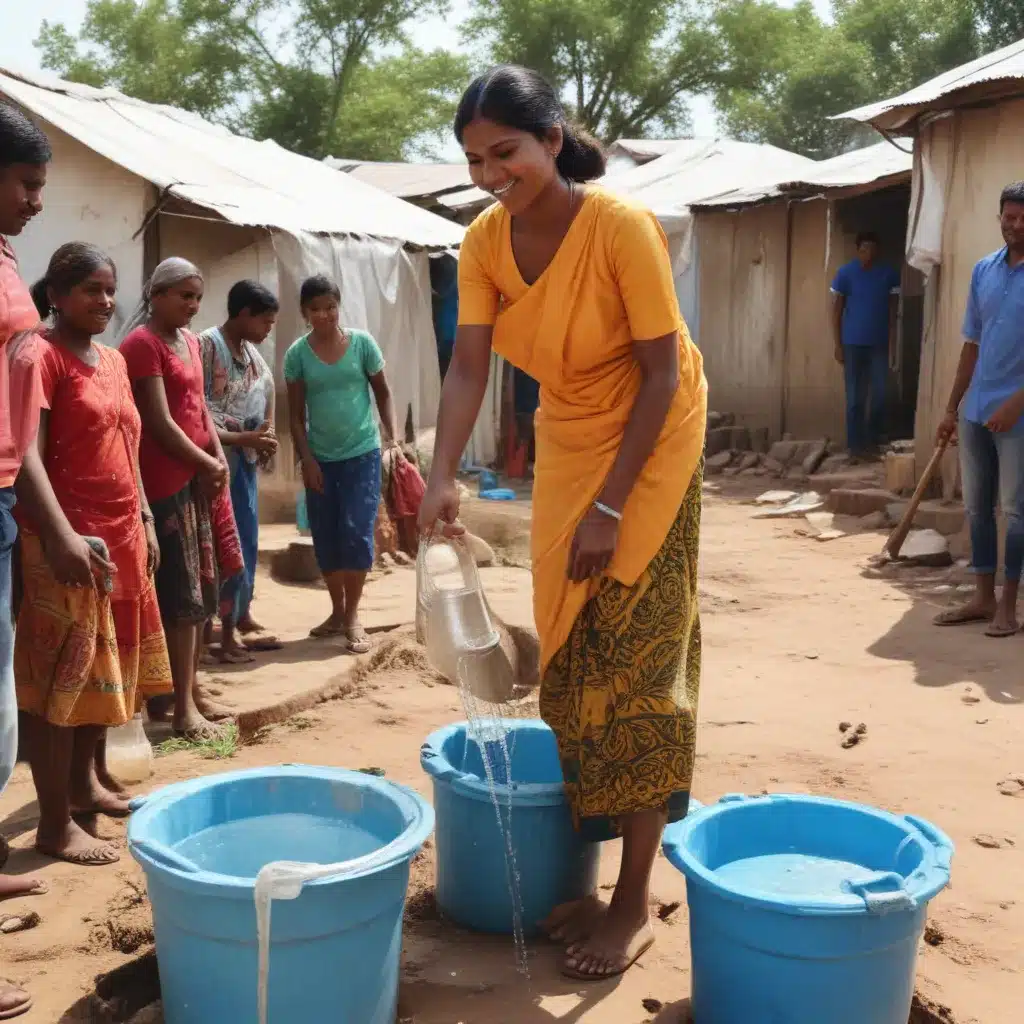
Empowering Communities through Technology and Inclusive Policies
Hyderabad, the vibrant capital of Telangana, is a city of stark contrasts. While it boasts a thriving tech hub and modern infrastructure, it is also home to a significant population living in informal settlements, or slums, lacking access to basic water, sanitation, and hygiene (WASH) services. These underserved communities face daily challenges in securing their fundamental rights to clean water and dignified sanitation.
However, a glimmer of hope is emerging as Hyderabad embraces a new era of innovation and community-driven solutions. By fostering an ecosystem that nurtures entrepreneurship and empowers residents, the city is poised to transform the landscape of affordable WASH services in its informal settlements.
Bridging the WASH Gap: Identifying Challenges and Innovative Approaches
Hyderabad’s informal settlements, home to an estimated 1.5 million people, are often overlooked in the city’s development plans. These communities, primarily located on the urban periphery, grapple with a myriad of WASH-related issues, including:
- Inadequate Water Supply: Many households rely on shared public taps or expensive private water tankers, leading to water scarcity and unaffordable prices.
- Lack of Sanitation Facilities: Open defecation and poorly maintained communal toilets are common, posing significant health risks and compromising the dignity of residents.
- Insufficient Waste Management: Irregular collection and disposal of solid waste contribute to unsanitary living conditions and environmental degradation.
To address these pressing challenges, Hyderabad has begun to embrace a new approach that harnesses the power of innovation and entrepreneurship. By fostering a supportive ecosystem for WASH-focused startups and community-led initiatives, the city is empowering residents to become active agents of change.
Unlocking the Potential of WASH Entrepreneurship
Recognizing the importance of innovation in addressing the WASH crisis, the Telangana government and various non-governmental organizations have launched initiatives to nurture WASH-focused startups and social enterprises.
One such initiative is the WASH Innovation Challenge, a collaborative effort that aims to identify and support promising solutions. Through this platform, entrepreneurs and community-based organizations are encouraged to develop innovative WASH technologies, service delivery models, and financing mechanisms tailored to the needs of informal settlements.
“The WASH Innovation Challenge has been a game-changer for us,” shares Aadhya, the founder of Swachh Solutions, a startup providing affordable and sustainable toilet facilities in Hyderabad’s slums. “The mentorship, funding, and networking opportunities have empowered us to scale our impact and collaborate with local communities to create lasting change.”
Startups like Swachh Solutions are not only addressing the immediate WASH needs of residents but also fostering a sense of ownership and self-reliance within the communities they serve. By engaging residents in the design, implementation, and maintenance of WASH solutions, these enterprises are building a foundation for long-term sustainability and community-driven development.
Empowering Communities through Inclusive Policies and Capacity Building
In parallel with the focus on innovation, Hyderabad is also strengthening its policy framework to ensure that the city’s development efforts are inclusive and responsive to the needs of its informal settlements.
The Slum Upgrading Policy has emerged as a crucial tool, recognizing the right of slum dwellers to access basic services and secure land tenure. This policy has paved the way for collaborative efforts between the government, community organizations, and WASH startups to improve living conditions and provide sustainable WASH solutions.
“The Slum Upgrading Policy has been a game-changer for us,” says Amara, a community leader in one of Hyderabad’s informal settlements. “We now have a voice in the decision-making process, and the government is working with us to ensure that our needs are met.”
Alongside policy reforms, Hyderabad is also investing in capacity-building initiatives to empower residents with the knowledge and skills to advocate for their rights and actively participate in the development of their communities.
Community-led total sanitation (CLTS) programs, for instance, have empowered residents to take ownership of their WASH challenges and become agents of change. Through these initiatives, residents are learning to monitor water quality, maintain communal toilets, and organize community-driven cleanup drives.
Fostering Collaborative Ecosystems for Sustainable WASH Solutions
The success of Hyderabad’s WASH innovation and entrepreneurship ecosystem lies in its ability to foster collaborative partnerships and synergies among diverse stakeholders.
Local government agencies, such as the Hyderabad Metropolitan Water Supply and Sewerage Board (HMWSSB), are working closely with WASH startups and community organizations to identify and address the unique needs of informal settlements. This collaborative approach has led to the development of tailored service delivery models, innovative financing schemes, and effective monitoring and evaluation mechanisms.
Furthermore, the city is leveraging its vibrant technology and innovation hub to drive WASH-focused research and development. By connecting WASH entrepreneurs with technical experts, engineers, and data scientists, Hyderabad is enabling the co-creation of cutting-edge solutions that tackle the complexities of urban WASH challenges.
“The collaborative ecosystem in Hyderabad has been instrumental in our success,” says Aadhya from Swachh Solutions. “We’re able to leverage the expertise and resources of various stakeholders to develop solutions that truly meet the needs of the communities we serve.”
Scaling Up and Replicating Success: Towards a Water-Secure and Dignified Future
As Hyderabad’s WASH innovation and entrepreneurship ecosystem continues to evolve, the city is poised to become a model for other urban centers in India and beyond. By sharing its learnings and best practices, Hyderabad can inspire and guide other municipalities in their efforts to provide affordable and sustainable WASH services to their informal settlements.
The Joint Action for Water initiative is well-positioned to play a catalytic role in this process, fostering knowledge-sharing, cross-collaboration, and the replication of successful WASH solutions across different regions.
Through a collective commitment to innovation, inclusive policymaking, and community empowerment, Hyderabad is demonstrating that the path to water security and dignified sanitation is not only possible but also within reach for the city’s most vulnerable residents. As the city continues to lead the way, it offers a beacon of hope for the millions of people worldwide who still lack access to the most basic of human rights – the right to clean water and proper sanitation.

